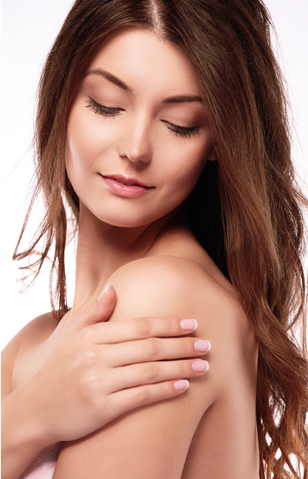There is evidence to suggest that certain food habits may contribute to the development of acne. Research suggests that a diet high in refined carbohydrates and sugars can increase the production of insulin and insulin-like growth factor-1 (IGF-1), which in turn can stimulate the production of androgen hormones. Androgens have been linked to the development of acne as they increase sebum production and cause follicular hyperkeratinization, which can lead to clogged pores. In addition, dairy products have also been found to exacerbate acne due to their high levels of hormones and bioactive molecules. While not everyone who follows these food habits will develop acne, there is a correlation between diet and acne, and making dietary changes may be an effective way to manage and prevent acne in some individuals.
Millions of people worldwide are affected by acne, which is a prevalent skin condition. It can appear as pimples, blackheads, whiteheads, and other types of lesions, and can be both physically and emotionally distressing. In this blog, we will discuss everything you need to know about acne, including its causes, symptoms, treatment options, and prevention methods.
Causes of Acne:
A combination of factors, such as excess oil production and bacterial growth, contribute to the development of acne, inflammation, and hormonal changes.
Some of the factors that lead to acne include:
1. Hormonal changes: Fluctuations in hormones, such as those that occur during puberty, menstruation, and pregnancy, can lead to the overproduction of oil, which can contribute to the development of acne.
2. Excess oil production: When the sebaceous glands in the skin produce too much oil, it can clog the pores and lead to the formation of acne.
3. Bacteria: The bacteria Propionibacterium acnes can contribute to the development of acne by causing inflammation in the hair follicles.
Treatment options for Acne:
There are plenty of treatment options available for acne, some include topical creams, oral medications, and procedures. Treatment for acne is common and includes:
1. Topical creams: These creams contain active ingredients such as benzoyl peroxide, salicylic acid, and retinoids, which can help unclog pores and reduce inflammation.
2. Oral medications: Antibiotics, hormonal therapies, and isotretinoin are all medications that can be used to treat acne. These medications balance your hormones, Reduce inflammation and irritation on the skin and kill bacteria.
3. Procedures: Procedures such as chemical peels, light therapy, and extraction can be used to treat acne. These procedures work by removing dead skin cells, reducing oil production, and killing bacteria.
Prevention of Acne:
Acne prevention includes several steps like:
1. Keep your skin clean: Washing your face twice a day with a gentle cleanser can help prevent acne by removing excess oil, dirt, and dead skin cells.
2. Avoid touching your face: Touching your face can transfer bacteria and oils from your hands to your face, which can contribute to the development of acne.
3. Use non-comedogenic products: Non-comedogenic products are products that do not clog pores and can help prevent the development of acne.
4. Manage stress: Stress can contribute to the development of acne by increasing oil production and inflammation. Practicing stress-management techniques, such as yoga or meditation, can help prevent acne.
In conclusion,
A very common skin condition, acne can be caused by a variety of factors. Treatment options include topical creams, oral medications, and procedures, and prevention methods include keeping your skin clean, not touching your face, not using comedogenic products, and avoiding unnecessary stress. If you are struggling with acne, speak with your healthcare provider to determine the best treatment plan for your individual needs.
